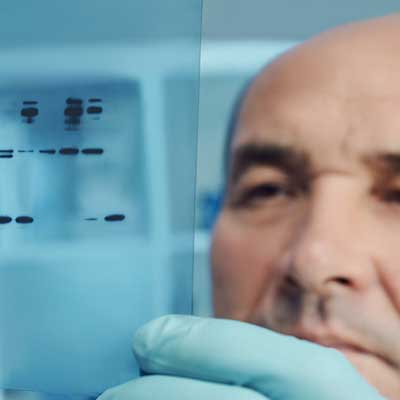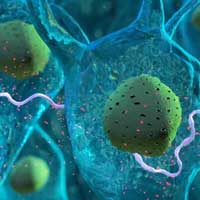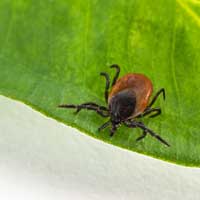What Should Cancer Patients Eat?
A healthy diet is a critical aspect for cancer patients, as an incorrect eating plan can feed the disease and impact your response to cancer treatment. Dr. Dino Prato and Dr. John Oertle emphasize the importance of precision even in planning a balanced diet as different people have varied genetic factors, which influence the way their body reacts to food. They highlighted the overarching methodologies patients should follow during and after they complete cancer care, to help get their diet working towards building the immune system and fighting cancer.
Disclaimer: Individual results will vary. Envita makes no guarantees for outcomes. Each patient case is unique. Please consult your doctor before making any changes to your medical treatment. Not every patient is a candidate for care or achieves these results. Treatments used in this case may not all be FDA approved for the treatment of this condition.
Cancer is a disease that affects many people worldwide, and there are often many questions that come up about the best ways to manage it. One of the most common questions asked is, "What should cancer patients eat?" There cannot be one uniform answer to that question, because every patient's cancer risk and triggers are different and knowing that helps in determining each patient's precise nutrition needs, but typically avoiding sugar, processed food, and large meals remain the ground rule.
There are many metabolic markers that can contribute to cancer, such as VEG-F angiogenesis, serious inflammation, insulin glucose, cortisol, and microbiome. Therefore, it is essential to consider the quality of the food and food supplements that cancer patients are consuming, because food safety is critical for potentiating optimum response to treatments. It also helps in checking or reducing certain treatment side effects.
Organic food, rich in good nutrition, such as veggies, beans, legumes, tofu, and grass-fed meat are typical recommendations. Even when you are eating healthy, it is critical to ensure that you have small meals to get just enough calories and maintain a healthy weight. Intermittent fasting is often incorporated to help turn on cell autophagy and other physiological processes, which can be helpful when dealing with a cancer diagnosis.
According to latest cancer research studies, Mediterranean diet is considered one of the most worldwide healthy dietary patterns thanks to a combination of foods rich mainly in antioxidants and anti-inflammatory nutrients. It also emerges as a protective factor against cancer onset, especially when there is a high intake of olive oil, fresh fruit, and vegetables.
Beyond these few basic ground rules on diet, each patient needs specific healthcare diet plans, depending on the stage and type of their disease and other factors influencing the growth and proliferation of their disease. Fruit juices, smoothies, or foods like brown rice, dairy products, soups, whole grains, lentils, and cottage cheese, cannot be a blanket recommendation for every cancer patient.
The metabolic function within the body is different for each person and it changes as we age, highlighting the need to optimize what we feed our bodies to ensure that we stay healthy. Making the necessary changes, such as drinking water with lemon or apple cider can also go a long way in your journey to recovery. Hydration is essential for good health, and dehydration can cause cells to create signals for growth. Constipation is also a significant issue for cancer patients, and opening up bowels through hydration can help with bowel movements.
Along with diet, stress management, sleep, and adequate physical activities are also critical pieces that contribute to your journey to health. By making positive lifestyle changes and working with a care team, patients can improve their response to care and promote their bodies' natural healing pathways.
We are proud to present our dedicated group of healthcare professionals who specialize in a range of fields, including oncology, interventional radiology, research, and pharmacy. Working together, they collaborate to improve treatment options for individuals battling cancer, chronic Lyme disease, and other autoimmune conditions. Our team has undergone extensive training to fully embrace our personalized precision care approach. By integrating state-of-the-art conventional therapies with evidence-based integrative medicine, our primary objective is to enhance your quality of life, extend longevity, and minimize the typical toxicities and side effects associated with traditional cancer treatments. If you or your loved ones are facing any form of cancer or chronic illness, we warmly encourage you to reach out to our patient care coordinators at 866-830-4576. May your journey towards recovery be filled with blessings.










